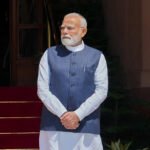
Recently, General Asim Munir, the Chief of Pakistan’s Army, made comments regarding the possibility of a nuclear strike on India, which has once again sparked international interest and worry over Pakistan’s nuclear arsenal and the possible foreign interests regarding its oversight and control. In international and defense discussions, the key issue seems to be: What possible justification does Munir have for threatening a “nuclear attack,” and does the United States keep any nuclear weapons on Pakistani soil? This piece illustrates the information gathered, evaluates current affairs, and sets the record straight on issues that, in the eyes of the international community, are crucial in understanding strategic issues, nuclear warfare policies, and security concerns regarding the South Asian region.
Pakistan’s Nuclear Arsenal: Who Controls the Weapons?
With a nuclear arsenal of 170-200 warheads as of 2025, Pakistan is ranked 9th in the world as a nuclear-armed state, and its arsenal is aimed to deter India’s conventional military superiority. Nuclear-armed states with civilian rather than military control over nuclear assets tend to be more volatile as compared to Pakistan, which tightly controls its nuclear assets under military supervision, more specifically, under the Strategic Plans Division of the Pakistan Army. Pakistan’s nuclear capabilities include short-range missiles as well as larger strategic delivery systems.
No US Nuclear Weapons Stored in Pakistan
There are no nuclear weapons in Pakistan that the US keeps, deploys, or shelters, and the US nuclear arsenal is safely stored in the US or NATO bases in Europe. America’s nuclear concern related to Pakistan is limited to extending help in safeguarding Pakistan’s weapons and does not extend to Pakistan’s nuclear security affairs.
American Concerns and Response
Pakistan’s arsenal of nukes has always drawn attention from the US government. America is particularly concerned with the prospect of these nuclear weapons being held hostage to terrorism, civil unrest, or military coup. Reports suggested that the US had, post-9/11and subsequent attacks on Pakistan’s military assets, developed plans referred to as “snatch and grab” plans to secure nuclear weapons should Pakistan, for some reason, lose control over them. Fortunately, these plans still remain unexecuted.
On several different occasions, the US offered to help Pakistan with the security of its nuclear weapons, but in all such cases, Pakistan simply did not want to be monitored or have its nuclear sites intruded upon. There is no credible, public evidence that American forces have physical access to, or control over, Pakistan’s nuclear arsenal.
Asim Munir’s Nuclear Threat: Context and Critique

The chaos that Munir caused by assuming authority to speak on nuclear weapons is nothing short of astounding. Right after the heartbreaking attack in Pahalgam and the Indian disrespect towards the Indus Waters Treaty, in the early days of August 2025, Asim Munir made headlines by linking the suspension of the waters to a supposed existential threat. He even went to the length of saying, and I quote, “We are a nuclear nation. If we think we are going down, we’ll take half the world down with us.” To put it lightly, such roguish statements on a global stage have received tremendous backlash. Munir’s insane need to boast and fear-monger—even India has had his fair share of problems looking towards Pakistan’s “nuclear command structure.”
This is the moment in the talk where I stress Munir’s views are well documented and India’s perception and that of the international community are different. He and others have referred to such statements as “nuclear saber rattling” and have urged the rest of the world to recognize how dangerously flawed Munir’s reasoning is, not in isolation, but as revisionism with disrespect by calling his country a victim.
Strategic Signaling vs. Imminent Conflict
Pakistan’s nuclear doctrine is based on “full spectrum deterrence,” not a first-use pledge. Its arsenal serves as a buffer against India’s conventional military might, with modern advancements concentrating on tactical nuclear weapons and their delivery systems. Pakistani officials have consistently used nuclear rhetoric as strategic signaling aimed at perceived existential threats, not as indicators of conflict on the horizon.
General Munir’s threats are aligned with previous Pakistani signaling, but they do not point toward actual US control or involvement with the nuclear assets. They are best interpreted as regional posturing and a mechanism for deterrence and not as credible, actionable intent.
US-Pakistan Nuclear Relations: Assistance, Not Deployment
- There is no storage or deployment of nuclear weapons by the US in Pakistan.
- Pakistan’s nuclear assets remain solely under its control, albeit the US provides safety-related advisory assistance.
- Contingency plans for “snatch-and-grab” scenarios have never been actualized or put into the public domain.
- American strategy concerning the nuclear arsenal of Pakistan centers around nonproliferation, securing the assets, and preventing theft or unauthorized access.
Conclusion
Munir’s aggressive statements, like those of other Pakistani military leaders, cite fantasies of American control. Asim Munir’s bluster, like that of many other Pakistani military leaders, is a placeholder for strategic posturing due to domestic expectation. Pakistan and the US are not in collusion over nuclear matters, and the world does need to keep an eye on nuclear safety in South Asia. Pakistan’s arsenal is in domestic control and is influenced by traditional hostilities, not American secretive placements.











